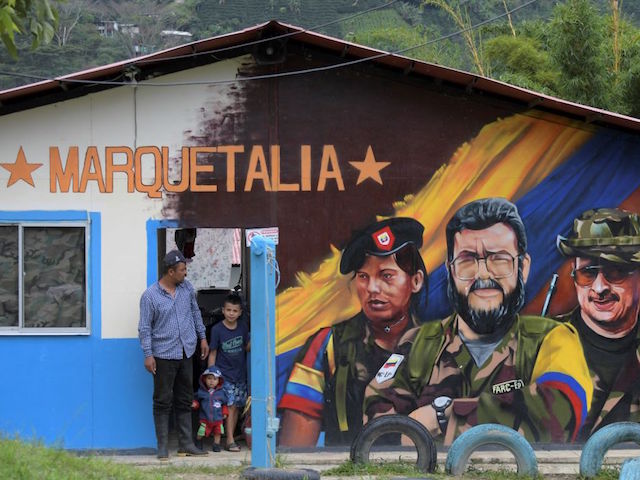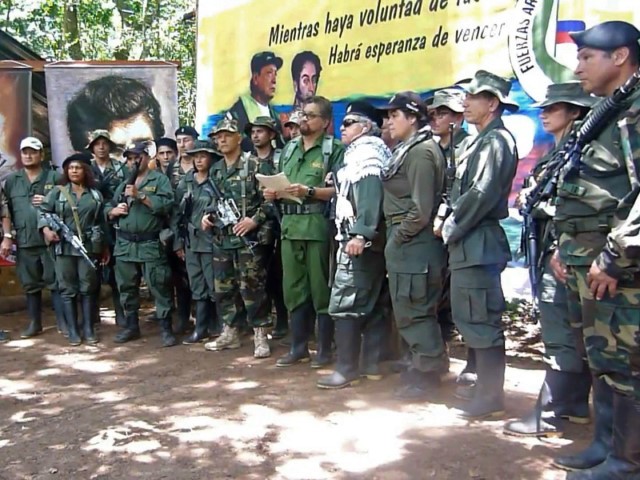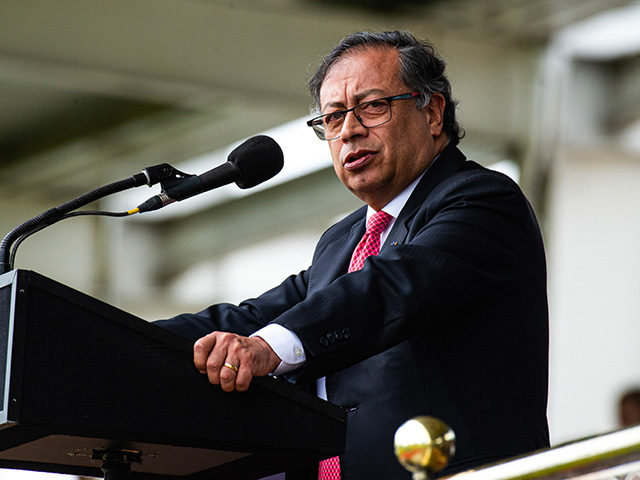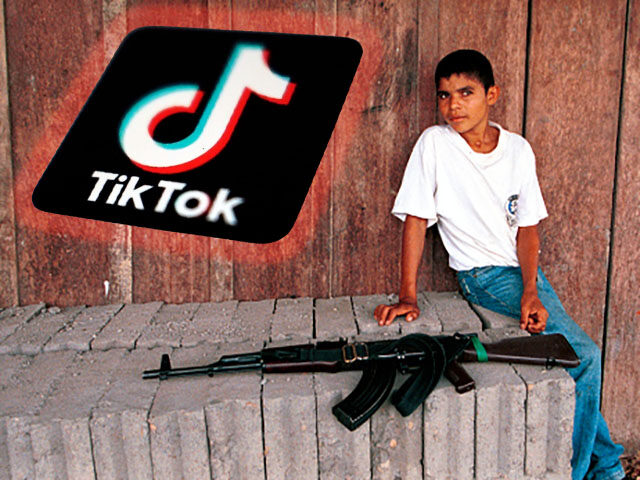The Colombian government asked its citizens to denounce TikTok accounts that are being used by the Marxist Revolutionary Armed Forces of Colombia (FARC) terrorist organization to recruit minors into its ranks, Colombia’s Communications Minister Mauricio Lizcano announced Thursday.
Lizcano made the announcement one day after a report published by Agence France-Presse (AFP) found that FARC is using the Chinese social media platform to spread propaganda. FARC is urging young Colombians to join the terrorist organization through dozens of TikTok accounts that have so far produced hundreds of posts.
RELATED VIDEO — Dem Rep. Krishnamoorthi: We’ve Forced App Sales Before, TikTok Used Data of Minors to Spread Lies:
AFP states in its report that FARC is luring Colombian minors with promises of wealth and images that glorify its fighters among vast fields of coca leaves — the main ingredient used in the manufacture of cocaine — to entice them to join the terrorist organization. While the majority of the videos are being published and shared on TikTok, AFP noted that some videos are also being shared on Facebook.
Some of the accounts, which boast thousands of followers, have shared images of men in fatigues on horseback or crossing rivers, accompanied by motivational and “revolutionary” messages that glorify the guerilla lifestyle, AFP found.
Lizcano, in remarks given to reporters, asked citizens to report the FARC TikTok recruitment videos to the nation’s authorities so that they can subsequently track the people behind the publications and, if necessary, prosecute them.

A man and children stand next to a graffiti of late FARC commander Alfonso Cano (C) at El Oso Territorial Training and Reincorporation Area (ETCR), in Gaitania, Tolima Department, Colombia, on October 27, 2021. (RAUL ARBOLEDA/AFP via Getty Images)
“Everything that is recruitment of minors is a crime, and it is a crime whether it is done physically or virtually, here what we have to do is to prosecute them,” Lizcano said. “What we have to do, from the Ministry we can help, but also what citizens can do is to report these accounts, and they are immediately blocked.”
Colombia, during the administration of former president Juan Manuel Santos, and FARC signed a “peace deal” in 2016. The agreement, signed in Havana under the auspices of state sponsor of terrorism Cuba, saw FARC “abandon terrorism” in exchange for a pathway that allowed its insertion into Colombian politics, with benefits such as uncontested seats in Congress and legal immunity, among other perks.
Although FARC signed the “peace deal,” it did not completely stop its narco-terrorist activities, which it has conducted for nearly six decades.

This TV grab taken from YouTube and released on August 29, 2019, shows former senior commanders of the dissolved FARC rebel army group in Colombia, Ivan Marquez (C) and fugitive rebel colleague, Jesus Santrich (wearing sunglasses), on an undisclosed location announcing that they are taking up arms again along with other guerrillas who have distanced themselves from a peace accord signed with the government in 2016. (-/AFP via Getty Images)
Since then, the Colombian government and mainstream media refer to FARC’s active forces as “dissidents,” claiming that the “true” FARC is the Bogotá-welcomed leadership. The still-active FARC “dissident” terrorist forces are currently led by Néstor Gregorio Vera Fernández, also known as “Iván Mordisco.”
Last week, FARC announced that it has bolstered its forces through the creation of a brand-new unit that will carry out criminal and terrorist activities across four of Colombia’s regions.
The announcement of the new FARC unit was made through a video published on social media, where a man reportedly identified as Iván Jacobo Idrobo Arredondo, also known as “Marlon Vásquez,” reads from a statement while in the company of armed men and two girls presumed by local Colombian media to be minors.
Colombian Defense Minister Iván Velásquez confirmed on Thursday that FARC is using TikTok. He said the terrorist organization is “indeed in that mode of seeking to recruit.”
RELATED VIDEO — Dem Rep. Moskowitz: Biden Needs to Get Off “Digital Fentanyl” TikTok, It’s Being Used to Divide Us:
Velásquez explained to local media that FARC is employing influencers or people dressed in uniform to spread messages in TikTok in which they glorify narco-culture to increasingly convince minors to join the terrorist organization. The Colombian Defense Minister asserted that local police and corresponding government institutes are already carrying out actions to counteract FARC’s recruitment of minors.
The Commander General of the Colombian Armed Forces, General Helder Giraldo, described FARC’s recruitment actions as a “flagrant violation” of the ceasefire agreement signed between Colombia and FARC.
As part of Colombian far-left President Gustavo Petro’s “total peace” initiative, the Colombian government has conducted a series of negotiations with both FARC and the Marxist National Liberation Army (ELN).

Colombian president Gustavo Petro in Bogota, Colombia on June 20, 2023. (Sebastian Barros/NurPhoto via Getty Images)
As part of the negotiations, the Colombian military and FARC “dissidents” had agreed to a temporary ceasefire in October that extended through July 15, 2024. Colombia suspended the ceasefire in March after FARC forces launched an attack on an indigenous community located in the country’s southwest, leaving one civilian dead and two injured.
Idrobo Arredondo, on behalf of FARC, claimed that the creation of the new criminal unit is a response to Colombia’s suspension of the ceasefire.
Colombian lawmaker Hernán Cadavid detailed through a series of social media posts on Monday how the FARC has expanded its presence, increased its armed ranks, and expanded its criminal activities since Gustavo Petro, a former member of the Marxist M19 guerillas, took office in 2022 as Colombia’s first leftist president in its history.
Cadavid further stressed that, according to official statistics, there were at least 184 registered cases of forced recruitment of minors and 210 violations to the now-suspended ceasefire agreement by the FARC during 2023.

COMMENTS
Please let us know if you're having issues with commenting.